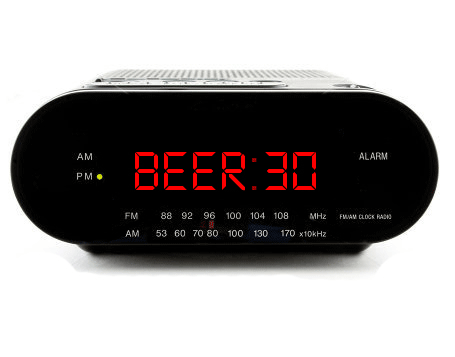Java
We all know Java Date/Time API is unusable and broken. So here's a fix that does not (at least directly) use any of the existing API. It even supports leap seconds! :) The output is in UTC.
import java.lang.reflect.Field;
import java.net.HttpCookie;
import java.util.*;
public class FixedTimeAPI4Java {
private static final List<Integer> MONTHS_WITH_30_DAYS = Arrays.asList(4, 6, 9, 11);
private static final List<Integer> YEARS_WITH_LEAP_SECOND_IN_DECEMBER = Arrays.asList(1972, 1973, 1974, 1975, 1976, 1977, 1978, 1979, 1987, 1989, 1990, 1995, 1998, 2005, 2008);
private static final List<Integer> YEARS_WITH_LEAP_SECOND_IN_JUNE = Arrays.asList(1972, 1981, 1982, 1983, 1985, 1992, 1993, 1994, 1997, 2012);
/**
* Returns the UTC time, at the time of method invocation, with millisecond
* precision, in format <code>yyyy-MM-dd HH:mm:ss.SSS</code>.
*/
public String getTime() throws Exception {
// The cookie is only used for accessing current system time
HttpCookie cookie = new HttpCookie("Offline", "Cookie");
Field created = HttpCookie.class.getDeclaredField("whenCreated");
created.setAccessible(true);
long millisecondsSinceEpoch = created.getLong(cookie);
long fullSecondsSinceEpoch = millisecondsSinceEpoch / 1000L;
int year = 1970, month = 1, dayOfMonth = 1, hour = 0, minute = 0, second = 0,
millisecond = (int)(millisecondsSinceEpoch - (fullSecondsSinceEpoch * 1000L));
ticks:
for (;; year++) {
for (month = 1; month <= 12; month++) {
for (dayOfMonth = 1; dayOfMonth <= daysInMonth(month, year); dayOfMonth++) {
for (hour = 0; hour < 24; hour++) {
for (minute = 0; minute < 60; minute++) {
for (second = 0; second < secondsInMinute(minute, hour, dayOfMonth, month, year); second++, fullSecondsSinceEpoch--) {
if (fullSecondsSinceEpoch == 0) {
break ticks;
}
}
}
}
}
}
}
return String.format("%04d-%02d-%02d %02d:%02d:%02d.%03d", year, month,
dayOfMonth, hour, minute, second, millisecond);
}
/**
* Returns the seconds in the given minute of the given hour/day/month/year,
* taking into account leap seconds that can be added to the last minute of
* June or December.
*/
private static int secondsInMinute(int minute, int hour, int day, int month, int year) {
return (minute == 59 && hour == 23 && ((day == 30 && month == 6) || (day == 31 && month == 12)))
? 60 + leapSecondsInMonth( month, year)
: 60;
}
/**
* Returns the number of days in the given month of the given year.
*/
private static int daysInMonth(int month, int year) {
return month == 2 ? isLeapYear(year) ? 29 : 28
: MONTHS_WITH_30_DAYS.contains(month) ? 30
: 31;
}
/**
* Returns whether the given year is a leap year or not.
* A leap year is every 4th year, but not if the year is divisible by 100, unless if it's divisible by 400.
*/
private static boolean isLeapYear(int year) {
return (year % 4 == 0 && (year % 100 != 0 || year % 400 == 0)) ? true : false;
}
/**
* Returns the number of leap seconds that were added to UTC time at the end of the given month and year.
* Leap seconds are added (by the decison of International Earth Rotation Service / Paris Observatory)
* in order to keep UTC within 0.9 seconds of international atomic time (TAI).
* <p>TODO: implement parser for updated list at http://www.ietf.org/timezones/data/leap-seconds.list :)
*/
private static int leapSecondsInMonth(int month, int year) {
return (year < 1972 || year > 2012) ? 0
: (month == 6 && YEARS_WITH_LEAP_SECOND_IN_JUNE.contains(year)) ? 1
: (month == 12 && YEARS_WITH_LEAP_SECOND_IN_DECEMBER.contains(year)) ? 1
: 0;
}
public final static void main(String[] args) throws Exception {
System.out.println(new FixedTimeAPI4Java().getTime());
}
}



2In other words, talk to a time server? – Peter Taylor – 2014-03-10T17:21:45.897
3Yes, you can do that. One possible solution. – microbian – 2014-03-10T17:23:12.520
3Rather unspecific question. I guess the most votes will be gathered by an answer like
print(input("Please enter the current time")). – Howard – 2014-03-10T17:32:12.360@Howard Is that banned by our standard loopholes? It should be. – Justin – 2014-03-10T17:39:24.120
7My money is on "Load REPL for different language and call its non-broken time API." – Jonathan Van Matre – 2014-03-10T17:46:23.063
Can I call library functions that call something like
GetDate()in its definition? – swish – 2014-03-10T18:42:10.7572@swich that is also not allowed. Because your answer will become unreliable. – microbian – 2014-03-10T19:30:56.107
To clarify - the system time is correct, but all the standard APIs are broken? Or is the machine time incorrect as well? – Allen Gould – 2014-03-10T19:35:16.680
System time is correct, it is only your language that when it tries to read system clock, it reads the wrong value. – microbian – 2014-03-10T19:40:17.013
Sorry for the unconstructive comment here, but: The time is 9:35 and it is the 11th of March 2014 :) Back to the Q = Nice question :) Are we allowed to open web pages? – George – 2014-03-11T21:36:26.183
Yes, you can do it. I want to see your solution. – microbian – 2014-03-11T21:40:05.617
Since i can't post an answer, I'll just leave it here: python:
current_time = input("I know it sound's weird but my clock is broken. Could you tell me the accurate time please? I'm talking micro-seconds here. Thanks in advance.")– Yekhezkel Yovel – 2014-11-26T20:29:26.820Another option (a bit more serious this time): constantly send GET request for which the response include the "Date" header. Parse the time from the "Date" header only the first time you receive it - but continue to request it. When the received "Date" changes you know you are a short time after a cycle, which get's you a bit more accurate. Continue to do so until you get banned for performing D.O.S attack on the site. – Yekhezkel Yovel – 2014-11-26T20:38:16.323
After that move to another site. This method is called para-site. – Yekhezkel Yovel – 2014-11-26T20:43:52.573